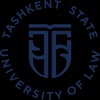
Science
19 December 12:54
25 November 10:09
6 November 21:25
30 October 15:15
13 October 13:18
3 October 13:13
3 October 09:48
29 September 09:30
19 September 13:40
16 September 10:05
1 - 10 of 173 items
December 2025
1
2
3
4
5
6
7
8
9
10
11
12
13
14
15
16
17
18
19
20
21
22
23
24
25
26
27
28
29
30
31
Use cursor keys to navigate calendar dates









